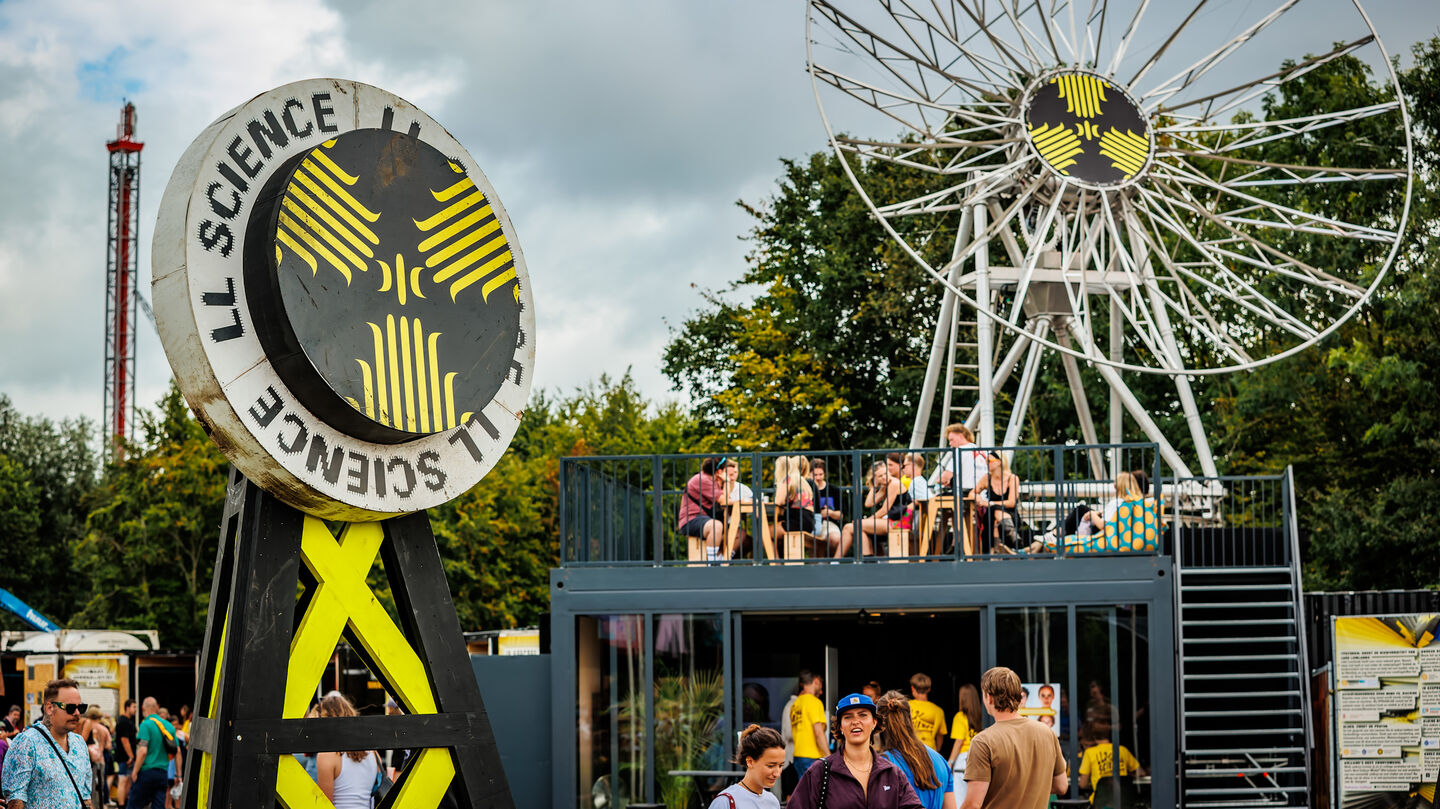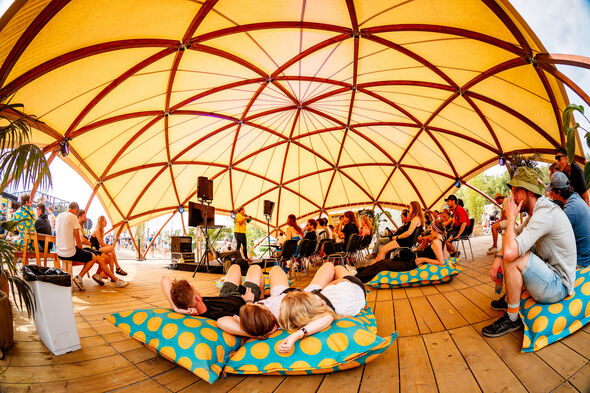
Experiment at Lowlands: enduring horror hand in hand
“Touch is essential to our well-being”
TU/e researcher Antal Haans is heading to Lowlands festival this weekend. Not for the bands and DJs, but to do research. The goal is twofold: to collect data on the influence of social touch on stress reduction, and to draw attention to sense of touch as a ‘forgotten sense’ in technology.
Science has been part of Lowlands’ timetable for many years. Both festivalgoers and researchers benefit: the former from fascinating infotainment, the latter from interaction with the audience as well as numbers of test subjects they can only dream of when testing in the lab. The Biddinghuizen-based festival collaborates with the Dutch Research Council NWO for Lowlands Science (LL Science for short).
Antal Haans and his colleagues from the Dutch Touch Society submitted an application, which was approved. Excuse me, the what? “The Dutch Touch” is a network of researchers from universities, universities of applied sciences, businesses, and TNO, Dutch organization for applied scientific research. “What we have in common is that we each study social or affective touch from our own discipline—ranging from neuropsychology to technology,” says Haans, who is an environmental psychologist as well as an engineer.
Skin hunger
The members of the Dutch Touch want to stimulate research on social touch. The sense of touch is a forgotten sense in science, Haans argues. "But in particular in technology. What science already knew, we as a society experienced during the coronavirus years: touch is essential to our well-being. We started to experience huidhonger or skin hunger: a craving for physical contact. And healthcare institutions came up with low-tech solutions that allowed us to give grandpa or grandma a hug, albeit with plastic in between.”
But still, says Haans, we can hear and see each other in Microsoft Teams, but we can't shake hands. The “touch technology” that does exist often uses vibration motors— which feels quite different than a stroke or a hug—and focuses on practical applications, such as for the blind and visually impaired.
“Whereas we know that touch has a significant impact on how we feel. For example, affective touch can play a role in stress regulation and pain reduction. And that is what the experiment at Lowlands is all about," says Haans, who works as a assistant professor at the Human Technology Interaction research group (IE&IS) at TU/e.
Pain stimulus
What can festivalgoers expect from the experiment? The Lowlands website promises “an experience that won’t let you go.” Haans explains: “We will expose the participants to a pain stimulus and a fear stimulus, dividing them into four groups: one quarter will hold the hand of a friend during the experiences, one quarter will do so with a stranger, another quarter will hold a HUG, and the control group will sit next to someone they know, but will not touch them.”
A “HUG”? “That is an interactive cuddly doll—with long, weighted arms and a heartbeat—that has been developed for people with dementia. We use it to investigate whether technologically mediated touch also has a regulating effect on stress and pain.”
Applications are conceivable in healthcare, for example in the unhoped-for event of a new pandemic, says Haans. “Also, part of humanity experience social touch to be stressful and will avoid it. Technology may enable them to benefit from the pain-relieving and stress-reducing effects of touch after all.“
Pinprick
In the run-up to Lowlands, Haans watched one horror film after another, all “for the benefit of science” of course. “Colleagues selected the creepiest clips and added light, sound, and scent effects.” All this is done to elicit the optimal stress response in the experiment, while remaining within safety requirements and ethical frameworks. For example, test subjects must be 18 years of age or older.
During the horror experience, the level of moisture on the skin is recorded, because we sweat when we are stressed. “That is a physiological, objectively measurable variable.” The pain stimulus is created with small electric shocks. This measurement is more subjective: “Participants must indicate when the pain reaches the level of a pinprick.”
Die meting is subjectiever: “Deelnemers moeten aangeven wanneer de pijn het niveau van een speldenprik bereikt.” The later that is, the lower the level of pain experienced by the test subject.
Sober
Haans has an intense weekend ahead of him: “Thursday is set-up day, and then we will be at the festival site for three days from noon to 8 p.m. According to the Lowlands organization, we may expect four to five hundred test subjects.” The fact that not everyone will arrive sober is a variable that the researchers take into account: “We will inquire about alcohol and substance use.”
He is hoping that the data will give grounds for publication. “But that's not what I'm looking forward to most. Performing research in this manner is unique, and it also presents an excellent opportunity to engage with visitors and talk to them about the science of social touch.”



Discussion